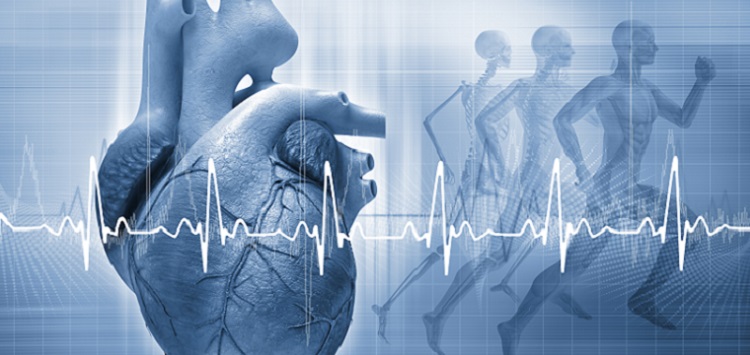How to improve your heart health with Cardiology care
How to improve your heart health with Cardiology care
Blog Article
Comprehending the Relevance of Cardiology in Modern Health Care Services
Cardiology plays an essential function in modern-day healthcare, especially as heart problem remains to be the leading reason for death worldwide. Breakthroughs in diagnostics and therapy have transformed person care, allowing earlier interventions and improved outcomes. Additionally, the change towards precautionary cardiology equips individuals to handle their health proactively. As technology remains to advance, the combination of ingenious options may further redefine cardiology's impact on public wellness, triggering a better evaluation of emerging patterns and their effects.
The Occurrence of Heart Condition and Its Effect On Public Wellness
Heart disease continues to be the leading cause of death worldwide, its influence expands much past individual clients to affect public health systems and economic situations. The high prevalence of heart problem positions a substantial pressure on health care sources, necessitating enhanced financing for prevention, rehab, and treatment programs. Public health efforts need to resolve danger elements such as weight problems, cigarette smoking, and less active way of lives, which contribute significantly to the climbing occurrence of heart conditions.Moreover, the financial worry related to heart illness is enormous, encompassing not just direct medical costs yet also indirect expenses associated with lost efficiency and premature mortality. Communities face difficulties in taking care of these expenses, usually causing differences in healthcare access and outcomes. As the population ages and lifestyle-related dangers proceed to intensify, the seriousness for efficient cardiology treatments ends up being paramount. Dealing with heart illness is not only a matter of specific health but additionally a crucial public wellness priority.
Developments in Cardiac Diagnostics and Imaging Techniques
Recent innovations in heart diagnostics and imaging techniques have actually reinvented the area of cardiology, boosting the capability to check and find heart illness. Techniques such as heart MRI, CT angiography, and echocardiography have come to be significantly sophisticated, supplying detailed pictures of cardiac structures and features. These methods allow for the very early recognition of conditions like coronary artery condition, heart failure, and valvular disorders.Moreover, improvements in non-invasive diagnostics, such as wearable innovation and remote surveillance tools, have empowered people and doctor. These tools help with real-time tracking of heart rhythms and other necessary indicators, bring about timely treatments. In addition, expert system is being incorporated into imaging analysis, enhancing accuracy and efficiency in diagnosis.
Developments in Therapy Options for Heart Issues
Current developments in cardiology have brought about significant advancements in treatment alternatives for heart problems. These consist of advanced medical techniques that improve step-by-step results and emerging medications that offer new avenues for therapy. As the area progresses, these technologies play a crucial role in enhancing individual care and outcomes.
Advanced Surgical Techniques
Developments in medical techniques have actually transformed the landscape of cardiology, offering brand-new wish for clients with heart problems. Minimally invasive treatments, such as catheter-based interventions, have greatly minimized healing times and hospital stays. Techniques like robotic-assisted surgical treatment improve accuracy, allowing doctors to navigate complex physiological structures with greater precision. Improvements in imaging technology facilitate real-time visualization during procedures, improving results. Transcatheter aortic valve substitute (TAVR) exemplifies an advancement in treating aortic stenosis, making it possible for shutoff replacement without open-heart surgery. Furthermore, hybrid strategies that combine catheter-based and surgical methods supply tailored solutions for different heart issues. These advanced medical strategies not only improve client security yet likewise increase therapy alternatives, underscoring the crucial function of advancement in modern cardiology practices.
Arising Therapies and medications
As the landscape of cardiology remains to progress, emerging medications and therapies play a crucial role in improving treatment alternatives for heart problems. Developments such as unique anticoagulants and progressed lipid-lowering representatives have actually changed the administration of heart diseases, substantially decreasing person morbidity and mortality. In addition, the growth of genetics therapies and regenerative medication uses encouraging opportunities for treating conditions formerly regarded irreparable. Medical tests are consistently revealing the efficiency of these treatments, pushing the boundaries of traditional treatments. The assimilation of electronic health and wellness technologies helps with tailored medication, allowing for tailored therapy strategies based on genetic and way of life factors. Jointly, these advancements highlight the vibrant nature of cardiology, improving person end results and redefining requirements of treatment in modern health care.
The Role of Preventive Cardiology in Person Care
Precautionary cardiology plays an important role in client care by focusing on the recognition of risk factors that add to heart problem. Through way of living alteration strategies and early discovery strategies, health care carriers can effectively reduce the incidence of cardiovascular occasions - Cardiology Jupiter. This proactive method not only boosts client outcomes however likewise advertises lasting wellness
Threat Aspect Identification
While cardiovascular illness continue to be a leading reason of morbidity and death worldwide, effective risk element recognition works as a foundation of preventive cardiology. Determining risk aspects such as high blood pressure, diabetes mellitus, hyperlipidemia, and household history is essential for early intervention. Healthcare professionals utilize various evaluating methods to assess these variables, permitting customized safety nets. In addition, understanding a patient's way of living selections, such as smoking cigarettes and physical lack of exercise, additionally notifies threat analyses. This extensive examination enables clinicians to establish customized care plans aimed at mitigating threats. By focusing on risk variable identification, healthcare systems can boost person outcomes and minimize the overall worry of cardiovascular diseases, inevitably adding to enhanced public health and wellness techniques and resource allotment.
Lifestyle Adjustment Strategies
A wide range of research studies highlights the essential function of lifestyle adjustment approaches in reducing cardio disease danger. These methods include dietary modifications, boosted physical task, smoking cessation, and weight monitoring. By adopting a heart-healthy diet regimen abundant in fruits, veggies, entire grains, and lean healthy proteins, people can reduce cholesterol levels and blood pressure. Normal physical task reinforces the heart and boosts overall cardio health. Additionally, quitting cigarette smoking greatly minimizes the threat of cardiovascular disease and enhances recovery prices for those with status quo. Weight monitoring better adds to cardiovascular wellness by mitigating various other risk variables such as diabetes mellitus and high blood pressure. Carrying out these way of life alters not only advertises specific well-being but likewise acts as a keystone of preventive cardiology in person treatment.
Very Early Discovery Methods
Way of living alterations substantially add to decreasing cardiovascular condition dangers, yet they are most efficient when combined with early discovery techniques. Preventative cardiology emphasizes the importance of recognizing possible heart issues before they rise into significant problems. Strategies such as blood pressure surveillance, cholesterol screening, and advanced imaging innovations like echocardiograms play critical duties in evaluating cardiovascular health. Biomarkers and genetic testing also enhance the precision of early detection, enabling for customized preventative methods. Normal cardiac risk examinations equip doctor to step in proactively, possibly protecting against cardiovascular disease and strokes (Cardiologist near me). By integrating these very early discovery approaches right into regular care, patients can gain from prompt lifestyle interventions and targeted therapies, inevitably enhancing and enhancing results lifestyle
Integrating Modern Technology Into Cardiology Practices
As improvements in innovation continue to improve various fields, the integration of cutting-edge tools and systems into cardiology techniques has come to be vital for enhancing patient care from this source and results. Telemedicine platforms allow cardiologists to keep an eye on individuals from another location, boosting accessibility to care while decreasing the problem on healthcare centers. Wearable devices, such as smartwatches, enable constant heart price tracking, informing both individuals and physicians to potential issues in real-time. Additionally, synthetic knowledge (AI) is being made use of to analyze substantial amounts of cardiac information, aiding in early medical diagnosis and personalized treatment strategies. Advanced imaging techniques, including 3D echocardiography, enhance visualization of heart structures, bring about a lot more precise interventions. site here Digital health and wellness records (EHRs) streamline patient details administration, making certain that cardiologists have instant accessibility to crucial data. Together, these technological advancements are transforming cardiology, advertising aggressive administration and improved health and wellness end results for patients with cardio problems.
The Relevance of Person Education and Engagement
Person education and learning and involvement play a pivotal function in the monitoring of cardiovascular health. By outfitting clients with understanding regarding their problems, therapy alternatives, and way of life changes, healthcare suppliers encourage individuals to take an energetic duty in their treatment. This proactive technique can bring about improved adherence to prescribed medications, nutritional adjustments, and exercise regimens, eventually decreasing the threat of complications.Engagement likewise fosters a solid patient-provider connection, motivating open interaction and count on. When people really feel notified and included, they are more probable to voice worries and ask concerns, which can bring about far better clinical results. Furthermore, educational sources, such as workshops or electronic systems, can improve understanding and advertise self-management methods. Generally, focusing on patient education and learning and interaction is necessary for improving cardio wellness, enhancing lifestyle, and decreasing healthcare expenses linked with heart diseases.
Future Patterns in Cardiology and Their Prospective Impact

Often Asked Questions
What Way Of Life Modifications Can Minimize Heart Problem Risk?
The present concern addresses way of living adjustments that can significantly minimize cardiovascular disease danger. Cardiology Jupiter. Taking on a balanced diet, taking part in normal exercise, maintaining a healthy weight, taking care of stress, and preventing tobacco can significantly enhance cardio wellness
How Can I Recognize Very Early Indicators of Heart Problems?
Identifying early indications of heart issues entails surveillance symptoms such as upper body discomfort, shortness of breath, fatigue, and irregular heart beat. Prompt recognition of these indications can trigger required clinical assessment and intervention for much better end results.
What Are the Distinctions Between Cardiologists and Heart Surgeons?
The distinctions between cardiologists and cardiac surgeons depend on their duties; cardiologists primarily detect and handle heart problems with non-invasive methods, while heart specialists perform procedures to deal with architectural heart concerns. Each plays an important, distinct role.

Just how Commonly Should I Get My Heart Health And Wellness Checked?
The regularity of heart health and wellness checks differs based upon private threat aspects. Normally, grownups ought to undergo evaluations every one to two years, while those with status quo may call for even more frequent evaluations as advised by health care specialists.
What Function Does Genes Play in Heart Problem Risk?
Genes greatly influences cardiovascular disease danger, with domestic patterns suggesting acquired problems. Particular genes can predispose individuals to high blood pressure, cholesterol concerns, and various other cardio troubles, highlighting the importance of hereditary screening in evaluating heart health. Heart illness continues to be the leading cause of death globally, its effect extends much beyond private people to affect public health systems and economic situations. Public view wellness initiatives should attend to danger variables such as excessive weight, smoking, and less active lifestyles, which add greatly to the rising occurrence of heart conditions.Moreover, the economic concern linked with heart illness is enormous, incorporating not just direct clinical costs however likewise indirect expenditures related to lost performance and early mortality. Preventive cardiology plays an important role in patient treatment by focusing on the recognition of threat variables that add to heart condition. Fabricated intelligence (AI) and device understanding are improving diagnostics and patient tracking, making it possible for early discovery of heart conditions. The distinctions in between cardiologists and heart specialists lie in their functions; cardiologists primarily manage and diagnose heart conditions via non-invasive techniques, while cardiac doctors execute surgical procedures to correct architectural heart concerns.
Report this page